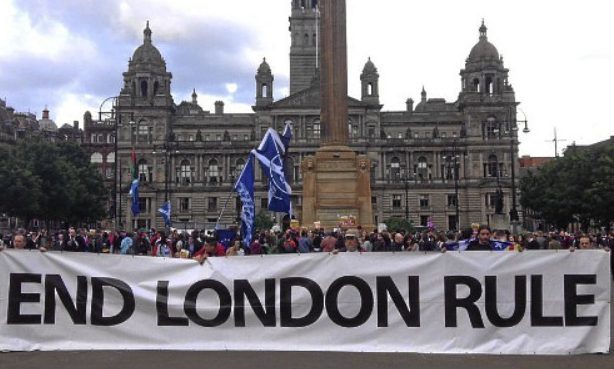There’s a running joke in Courier Towers that when questions over who’s right and who’s wrong get too tough for anyone to rationally address, the stock response should be: time for cool heads.
At the risk of falling into a cliche of our own making, it is worth taking a step back and a deep breath in the current political climate.
The fallout from the EU referendum result was always going to involve high passions, given how close it was.
When you add in the fact that we are now heading towards quitting Europe despite Scotland and Northern Ireland voting so differently to England and Wales, then it is entirely understandable that emotions took control in the immediate aftermath.
This was no more evident than in the clamour for a quick second Scottish independence referendum.
Those who spoke or wrote with the most fervour did so along the lines of: “So, you people who voted No, now are you Yes? Have you seen the error of your ways?”
Sensible people at the heart of the SNP realise that is not only a poor attitude to take, it misses the point.
Senior figures have been reminding their members of the “huge responsibility” they have if they want to achieve their dream.
That includes the wise words: “Stop calling people quislings or traitors because they do not, yet, agree with you about independence for Scotland.
“That means individuals as well as institutions. Speak to them, convince them, don’t insult them.”
Besides striking exactly the right tone for any Nationalist who wants to convince those who are sceptical, it also leaves the door open to take on board quite reasonable scepticism.
That’s because there are still a good many questions to be asked when it comes to the argument for Scottish independence.
What currency would we use if we were in the EU and separate from a post-Brexit UK?
What kind of trade deals would we get with England, Wales and Northern Ireland considering there would be a massive political border and the rest of the UK will likely not be part of the single market?
Speaking of borders, would we need passport control between Scotland and England? After all, it is being talked about between the north and the south of Ireland thanks to Brexit.
How does this affect free movement of people within Great British Isles?
Of course, all of these issues can be addressed and they may well be to a satisfactory level.
A hot-blooded, reactionary, simple solution to a large-scale, complicated problem is rarely the correct one.
Instantly and instinctively concluding that one separation means there should be another is therefore a dangerous route to go down.
That certainly seems to be the way Nicola Sturgeon is thinking.
Listen carefully to what the First Minister has said in the past few days.
“What I will be seeking to do is to negotiate to protect Scotland’s position and I will want to explore all options for doing that,” she told ITV’s Peston show.
“Now it may be that the only option is for Scotland to look at becoming an independent country, but I’m not starting from that premise, I’m starting from the premise of what do we need to do to protect Scotland’s interests.”
Sturgeon has been thoughtful in her post-EU referendum interventions. That’s more than can be said for most.
She is not diving in head first. She is saying a second independence referendum will only happen if it is the only way of keeping Scotland in the EU.
Sturgeon knows she needs answers before proposing another question.
